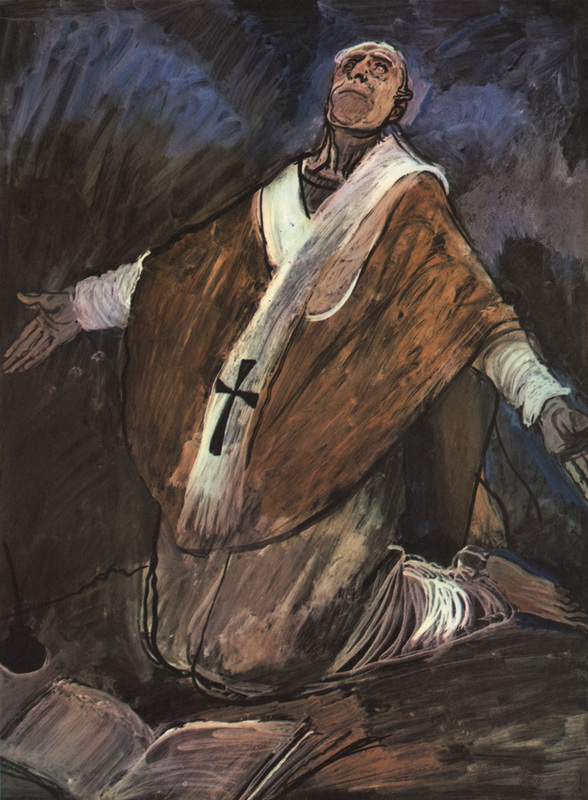St. Augustine
St. Augustine, Bishop of Hippo remains one of the most influential authors of church doctrine and the continued transmission and relevance of his texts for almost 1600 years serve as witness to his broad influence. Though he authored many works, he is most well known for his biographical Confessions and his master work The City of God.
Augustine recounted the story of his restless youth in The Confessions. The product of a pagan father and Christian mother, Augustine was not baptized in infancy. As a 19-year-old student in Carthage, he read a treatise of Cicero that directed him to philosophy. At age 28, he traveled to Rome and then on to Milan where he met with Bishop Ambrose. Under the tutelage of Ambrose, Augustine converted to Christianity in 386 and was baptized by Ambrose in 387.
Augustine then returned to Africa and was ordained as a priest in 391. He ascended to the bishopric of Hippo in 396. There he served as pastor, teacher, preacher, and civil judge.
He maintained the importance of a single, unified church and developed a theory of sin, grace, and predestination that not only became basic to the doctrines of the Roman Catholic Church, but later was also used as the justification for the tenets of Calvin, Luther, and the Jansenists.
Church historian John C. Cavadini writes the following about Augustine's Confessions:
In their psychological realism amounting almost to a phenomonology of subjectivity, they are a foundation stone for Western culture. Yet in their moving evocation of the absolute freedom and benevolence of God's grace, working through but ultimately independent from every cultural form and historical person, they present that grace to each generation as a kind of question mark, challenging all particular cultural forms and projects to resist the idolatry of self-deification. As such, the last word of Augustine's influence has yet to be spoken.

